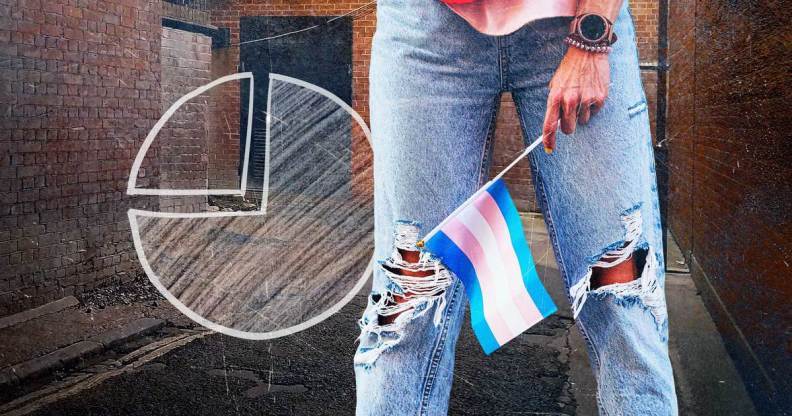Overwhelming number of trans people in UK pelted with verbal abuse, eye-opening study finds

Just Like Us has revealed a majority of trans young people have faced verbal abuse in the last year (Getty Images)
Nearly three quarters of trans people in the UK have faced verbal abuse in the last year, shocking new figures from a leading LGBTQ+ charity have revealed.
Just Like Us, the LGBT+ young people’s charity, has shared new data which highlights the raft of vile abuse both LGBTQ+, and non-LGBTQ+, young people face in the wake of rising homophobic and transphobic rhetoric.
The figures are part of a new report by the charity called Positive Futures, set to be published on 1 June, which examines the experiences of LGBTQ+ young adults in the UK.
The report will cover a range of topics including wellbeing, home life, school and work, as well as taking into account intersectional identities such as faith, race and disability.
Carried out by market researcher Cibyl on behalf of Just Like Us, the study surveyed 3,695 adults aged 18 to 25.
‘Devastating’
The research found in the past year 61 per cent of LGBTQ+ young adults have experienced verbal abuse.
Within these figures, a staggering 72 per cent of trans young adults faced verbal abuse in that time frame.
After trans people, non-binary (70 per cent) asexual (68 per cent) young adults were then the most likely to report verbal abuse in the last 12 months.
The research also found 11 per cent of non-LGBTQ+ young adults have also faced anti-LGBT+ verbal abuse during the previous 12 months, despite not being queer.
Amy Ashenden, interim CEO of Just Like Us, said it is “devastating” to see a majority of trans young people have faced verbal abuse and it is a “sign of the often terrifyingly transphobic times we are living in here in the UK”.
“The levels of abuse faced by LGBT+ young adults are completely unacceptable,” she said.
“It’s hard to believe that in 2023, LGBT+ young people are still being subjected to verbal abuse and violence, and that anti-LGBT+ attacks are so prevalent that they are even being directed at non-LGBT+ young people.”
‘Vital’ we take LGBTQ+ inclusion ‘seriously’
The Just Like Us research also found that when it comes to physical abuse, both LGBTQ+ and non-LGBTQ+ young people face similar levels (25 per cent and 24 per cent respectively).
However, when examined in terms of identity these results shot up for those who are lesbian (30 per cent), asexual (32 per cent) and gay men (31 per cent).
LGBTQ+ young adults were significantly more likely than their non-LGBTQ+ counterparts to say the physical abuse they experienced was sexual abuse (50 per cent opposed to 30 per cent).
Within this, young lesbians were the most likely to have faced sexual abuse (57 per cent) whilst asexual young people were the group with the highest likelihood of experiencing domestic abuse (44 per cent).
“It is absolutely vital that we start taking LGBT+ inclusion seriously, and that schools all over the UK give young people positive messages about LGBT+ identities, otherwise I fear that these figures will only increase,” Ashenden added.
“A great place to start for schools UK-wide is signing up for School Diversity Week, so that teachers can access our free and easy-to-use resources and let all of their pupils know that being LGBT+ is something to be celebrated and proud of.”
How did this story make you feel?

